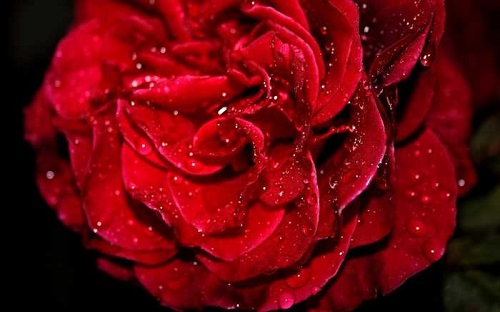FWP:
Ghalib has cleverly left it up to us to supply the causal logic by which the first line gives rise to the second one. Most fundamentally, we have to decide whether the speaker feels shame because of similarities between the wanton beloved and the wanton rose-scent; or because of differences between the (theoretically at least) secluded beloved and the wanton rose-scent; or simply because the rose-scent is a wandering tale-bearer who will too easily reveal too many secrets. The commentators have laid out a number of possibilities, and I don't have any others to add.
What I especially enjoy is the suggestive, provocative energy
of be;hijaabiyaa;N -- it's so much more lascivious-sounding
than the more commonplace be-hijaabii . It suggests
a variety of wanton actions, perhaps of many different kinds, perhaps repeated
many times; it invites us to fantasize. For more on such pluralized abstractions,
see {1,2}.

Nazm:
That is, I used to consider the scent of the rose to be immodest, since the moment a gust of wind comes, it's out of its robe. But you turned out to be even more immodest than it. The beloved's being immodest and shameless and mischievous too is a style, the way being bashful and remaining in pardah is also a style. (161)
== Nazm page 161